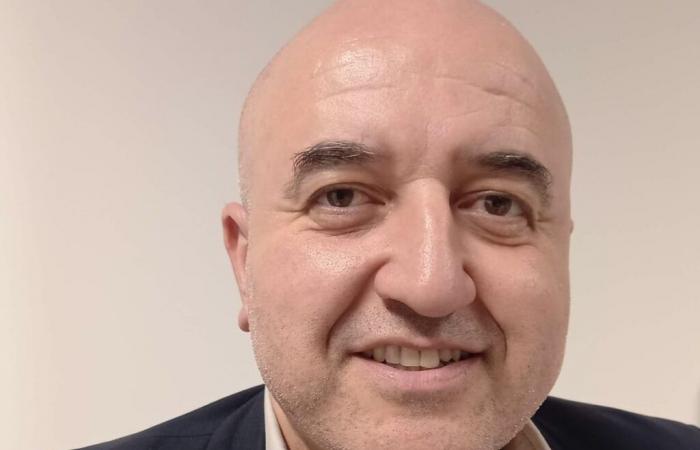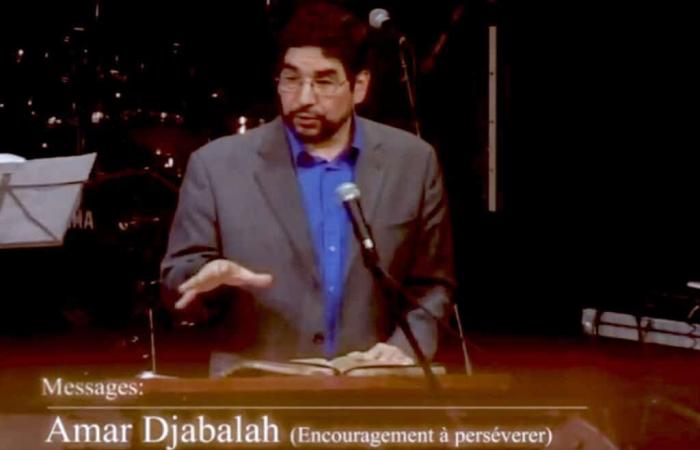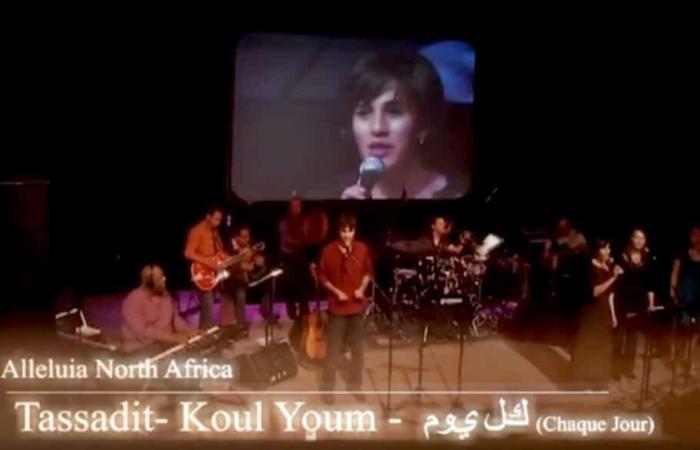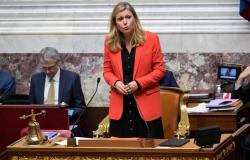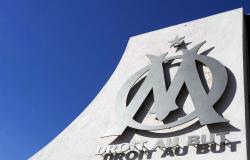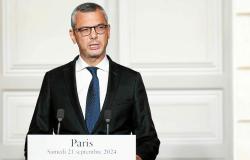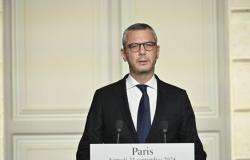Based in Vaux-sur-Seine (Yvelines), Pastor Karim Arezki wears several hats. With others, he was notably the architect of the creation of the Association of North African Christians (1), which he chairs. In this interview, he tells us more about the ACNA, a network which contributes to redrawing the contours of the postcolonial evangelical Francophonie.
Why was the Association of North African Christians founded in France?
The Association of North African Christians (ACNA) was formally born in 2005, following national meetings of Christians in the 1990s and early 2000s. At the time, these meetings were organized under the aegis of MENA ( Evangelical Ministry among North Africans), it was MENA (network founded in 1980, editor’s note) which provided the administrative and financial aspects, even if North Africans carried the project to some extent. Following the 2003 meeting, a group, of which I was part, met, saying: “perhaps it would be a good thing to create an association of North Africans, with a legal and administrative structure allowing ‘organize these meetings’. This is how it started. The formal creation of the Association of North African Christians (ACNA) took place in 2005. I was the youngest on the team, but the other partners elected me president, although initially, although ‘involved, I didn’t even think I would be part of the office.
How were ACNA activities carried out?
The first ACNA meeting took place in France in 2007. We invited Professor Amar Djaballah, from Canada, who left us in September 2023 (2). For the theme of the meeting, we wanted to mark a break from everything that had been done until then. We chose: “the priceless treasure Bible”.
Until then we chose to deal with themes such as “Christian faith and culture”, “culture and identity”. It was all about culture. It was time for us to return to what is essential, and not allow ourselves to be locked into a cultural approach. The meeting took place in Vichy, in the city’s sports complex, for a week. At the time, we were around 300-400 people. Entire families came to the event. It has been a blessing. It was during this meeting that a praise group was created, with several artists, under the direction of the ACNA. This group was called Alleluia North Africa. The performers sing in Berber (Kabyle and Chleuh), Arabic and French. They released a CD and a DVD, and performed concerts everywhere. From this meeting in 2007, we had the feeling of a new beginning for North African Christians here in France. We had taken a step forward. Ultimately, this administrative structure, the ACNA, very collegial, allowed us to assert ourselves in another way, and to develop.
Primacy of collective decisions
Usually we are afraid of administrative structures. There, the opposite, it was a driving force. For organizing concerts, conferences, etc. the ACNA functioned as a supporting structure, by North Africans for North Africans, which facilitates the task for those interested. Things could be done according to the rules, very simply. Very quickly, we learned to work collegially. Until then, Christian ministries engaged in Muslim environments were rather individual ministries. There was no supervision or coordination. No accountability. Very early on in our council, we asserted the primacy of collective decisions, accompanied by a formal report. The entire council is involved, not just the members of the office. We advanced perhaps a little less quickly, but we went further. Many joined us because of our collegial functioning.
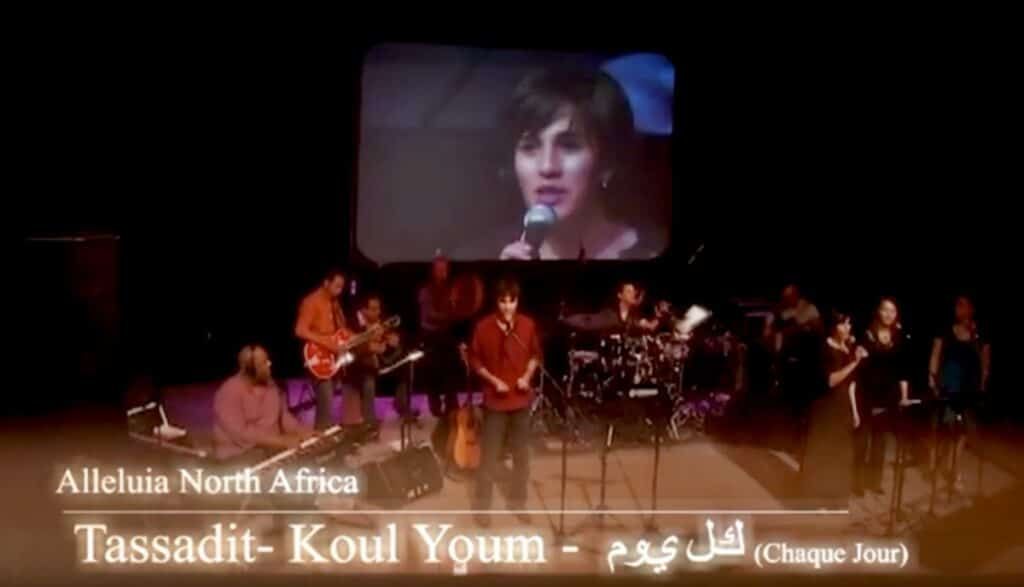

In 2011, our national meeting, still held in Vichy, was organized on the theme of persecution, following the expulsion in 2010 of Christian missionaries from Morocco. Some came from Switzerland, Belgium, and even the Netherlands. We devoted our thoughts and prayers to the Moroccan situation. Pastor Nordine Salmi, from Geneva, intervened. For him, as for Amar Djaballah, before, it was the first time that they found themselves in front of so many Christian North Africans. A very moving moment. Since then, Nordine Salmi has been very involved in the life of the ACNA and especially in theological training in North Africa. Another national meeting, in 2015, was an opportunity to celebrate our 10 years of existence. And there we did it in Marseille in the Baptist Church led by Pastor Jean-Louis Jabin. At the time pastor at the Tabernacle Baptist Church in Paris, I was sensitive to the fact that para-ecclesial Christian works were linked with the local Church. Subsequently, in our meetings, we favored partnerships with local assemblies. What we did in Metz, with an Assemblies of God Church (ADD). We no longer reproduced the formula of putting ourselves aside, as we did at Vichy.
Since the 2011 crisis, the situation in Morocco has calmed down, unlike the hardening of Algerian policy towards churches…
Yes, indeed, this is why at the start of 2024, following the closure of churches in Algeria (see previous interview with Karim Arezki, editor’s note), we invited, as part of our national convention, the current president of the Protestant Church of Algeria. This took place at the Évidence Church, in Montrouge. We pray, reflect and act, with the hope of soon normalization in Algeria on the issue of freedom of worship.
How does the ACNA fit into French Protestantism?
We are North Africans, of course, with a Muslim background for most of us, but we live in the reality of French evangelical Protestantism. Many of us also have French citizenship. And we did everything to integrate ourselves completely into this reality, with our specificities. We do not want to evolve in parallel, or in opposition. This is why the ACNA, very quickly, became a member of the National Council of Evangelicals of France (CNEF). We participate in different pastoral programs, bodies, circles. Our members are connected via a WhatsApp group and a database managed by email, on the basis of an annual subscription of 15 euros, which allows us to manage our operating costs.
How do you estimate that the Arab and Berber Christian contribution is taken into account in the French Churches?
For years, the CNEF branch in Lille was chaired by one of ours. But I must say that the members of the ACNA also report that they are often asked only to make a good couscous or a good cleaning. Or sometimes, for street evangelism. But they also want to teach in a home group, to be valued for their contribution in terms of sharing the Bible. There is a frustration expressed in this way, and I think it needs to be heard. It is expressed in a gentle, not violent, manner, and it is time to take it into account, because otherwise it risks becoming more vehement, with also a risk of separation. It is the duty of the Church, in France, to serve with all its components. To deal with your present reality. I also say this as a Church leader. We must remain vigilant, and serve with those whom the Lord sends to us. This is the condition for having a credible church. Within the ACNA, we have always sought to bridge the gap, to make things easier. Brothers and sisters are encouraged to report to their leaders.
Trusting Christians of Muslim Background
There must be efforts on both sides. The heart is trust. When you have brothers and sisters from a Muslim background, you have to have the same attitude as with brothers and sisters who come from the United States. When brothers come from the United States, after 48 hours they are asked to preach! When they come from Cameroon, Ivory Coast or Algeria, you have to wait after 5-6 years to see if they can lead a meditation during the week. This is not normal. We are here to discern and encourage the gifts of those whom God calls to serve. When there is a condescending, not honest look towards our brothers and sisters who come from elsewhere, we must ensure that we transform it. You have to trust. Within the ACNA, among the people who follow us, there are fathers, young people, women, mothers, single mothers, all kinds of backgrounds, and we try to support them as best we can. These brothers and sisters express a thirst for communion that goes beyond the normal. They are suffering. This is explained by the fact that by leaving Islam, they left an entire family and community environment. By joining Christianity, they want to find more than worship. They want to have friends, meet brothers and sisters with whom they can eat, go out and talk. They have a real thirst for knowledge of God, and this also comes through the community. This thirst can sometimes put us in difficulty as a pastor. We also face socially modest situations too, with people who do not necessarily need to be helped, but who are in need of support and guidance.
Faced with these expectations, is the internet a resource?
Yes, absolutely. As part of the ACNA, we have set up online fraternal meetings every month. Those who want to connect. These meetings are very successful. It is a moment of exchange, meditation, prayer. We share news, giving freedom to whoever wants to speak. And it works. We have developed this formula since COVID. We thought we would stop afterwards, but there is a strong demand. These meetings normally last from 8:30 p.m. until 10:30 p.m., but those who want to stay online after 10:30 p.m. can continue. They stay and chat, bring herbal tea in front of their screen, and chat. These meetings take place on Friday evenings. This is logical, because we are at the end of the week, which allows us to take stock. We took care not to be too numerous, to maintain a capacity for exchange with everyone. Attendance is between twenty and thirty-five people, who represent as many households. Often, they are not the same people. Attendance changes from month to month. This happens in a harmonious, natural way, without selection; If there are too many of us connected, we divide into groups.
We also have a YouTube channel, to be updated, but we no longer have a website at the moment. Finally, the web also facilitates contacts with the other side of the Mediterranean, particularly in emergency situations. Thus, the ACNA mobilized when there was the earthquake in Morocco, to send donations. We did the same when there were the big fires in Algeria. We organized a collection, we identified the right people on the ground to help them. The ACNA is a tool of communion, but also of solidarity.
(1) The ACNA notably has a YouTube video channel, called @associationacna4948. For any information, write to [email protected]
(2) See the portrait of Amar Djaballah, “Lifting the barriers, the legacy of Amar Djaballah (1951-2023)”, Fil-info Francophonie, Regardsprotestants (online October 11, 2023)
Read also:

